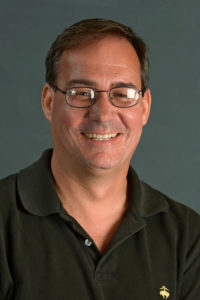Professional social workers prevent crises and counsel on how to cope with the stresses of everyday life. They have a deep understanding of human development and behavior. Carl Castro is the Director of the Center for Innovation and Research on Veterans and Military Families at the University of Southern California. He is also a member of the Council on Social Work Education (CSWE). He gave us some insight into the specialization of social work for military members, veterans and their families.
 ExploreHealthCareers.org (EHC): Can you tell me more about the Center for Innovation and Research on Veterans and Military Families?
ExploreHealthCareers.org (EHC): Can you tell me more about the Center for Innovation and Research on Veterans and Military Families?
Carl Castro (CC): It’s an academic center where our student veterans may affiliate, and it allows us to provide support while monitoring the support of our veterans. Social workers who aren’t veterans are also allowed to be a part of the Center, as long as they’re pursuing their certificate in military social work. The Center also lets social workers know about job opportunities that come up that are related to military ventures.
EHC: What inspired you to enter the field of social work?
CC: I love social work because it provides a holistic view of the individual, which is an approach I find very appealing. The model is made up of the biological, psychological, social and spiritual factors embedded in everything we do in social work.
EHC: You also obtained the rank of colonel in the U.S. Army. How did your military experience help in your social work career and your role in directing the Center?
CC: Being in the military, you get exposed to a wide variety of challenges and problems, from the clinical level to the service level and even policy and programs. I’ve brought that experience to curriculum development; and of course, as a researcher, I have doctoral students getting their Ph.D.s in social work, and I bring that experience with doing research in the military (with veterans) to the various research problems we try to address.
EHC: According to the Center’s website, your expertise centers around those in the military who are transitioning back to civilian life. I feel like this topic has received more recognition in the past decade. Can you confirm this change? What do you think caused it?
CC: It’s a huge problem, and there’s still tremendous interest in helping veterans reintegrate back into civilian society. I think where the focus has been lost is at the federal level. It’s because the major military conflicts have wound down, though it’s still an issue. These conflicts have been going on for so long — over a decade now — so people start losing their energy and start focusing on something new. It’s still a big issue, and local communities know it’s still important and are giving it that focus. We need to remind leaders at the state and federal levels that this isn’t going away.
EHC: What advice do you have for students interested in going into a social work career?
CC: For anyone going into social work, it’s a great profession. You have to care about people; if you don’t, you’re in the wrong profession. What we do in social work is really about saving lives and preventing unnecessary suffering. If that’s something that gets you excited, it ought to be a profession you consider.
EHC: What about those interested in working with veterans and their families?
CC: Working with military veterans and their families offers a unique challenge of immersing yourself in a different culture and applying the principles of social work to that population. In that sense, it’s very rewarding, and the profession has a lot of job opportunities related to the VA (Veterans Affairs), the department of defense and taking care of veterans — and they’re well-paying, too. The reason to get into military social work is that the work will be plentiful and you’ll be compensated for it.
Interested in applying to a social work program? Apply through SocialWorkCAS today!

